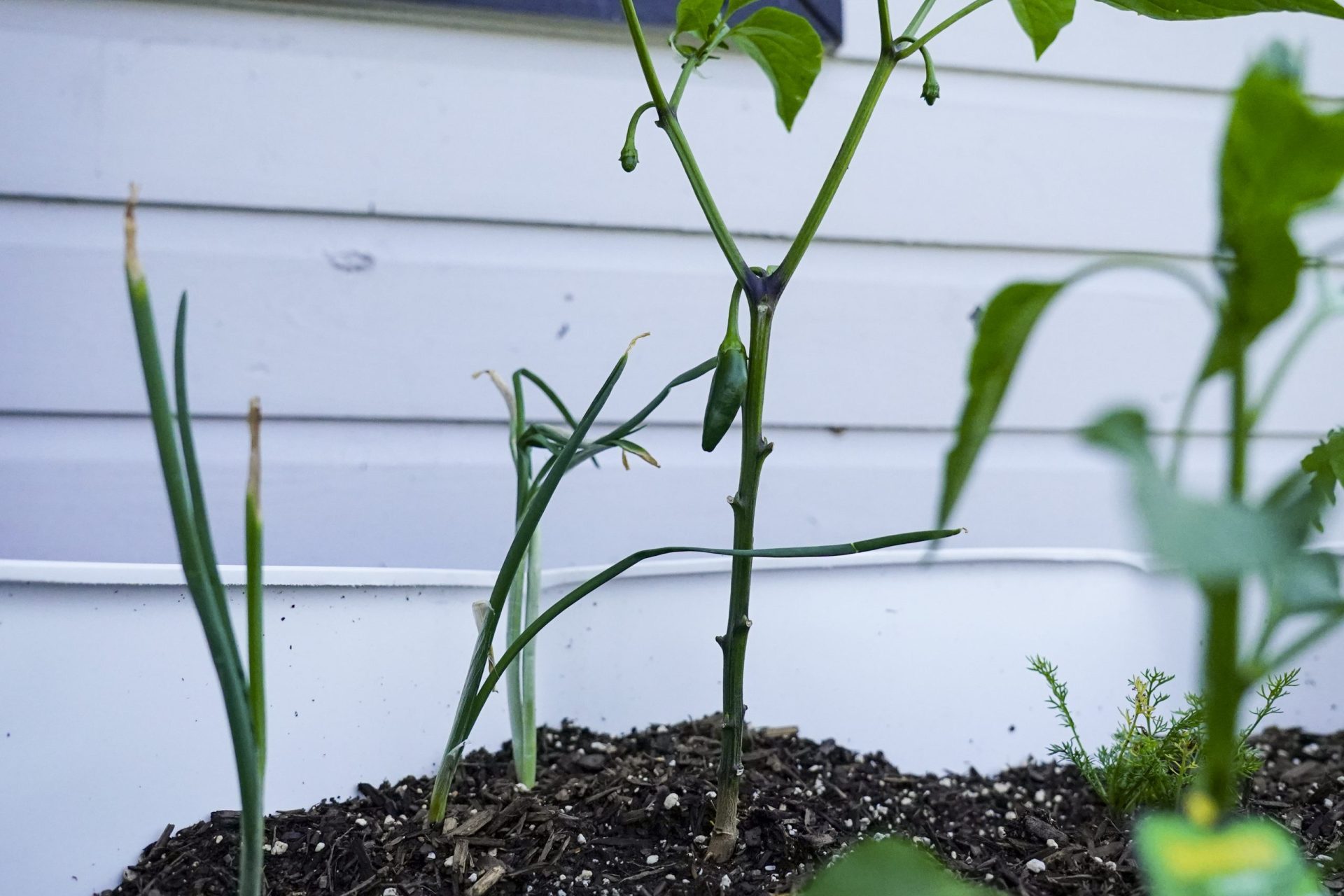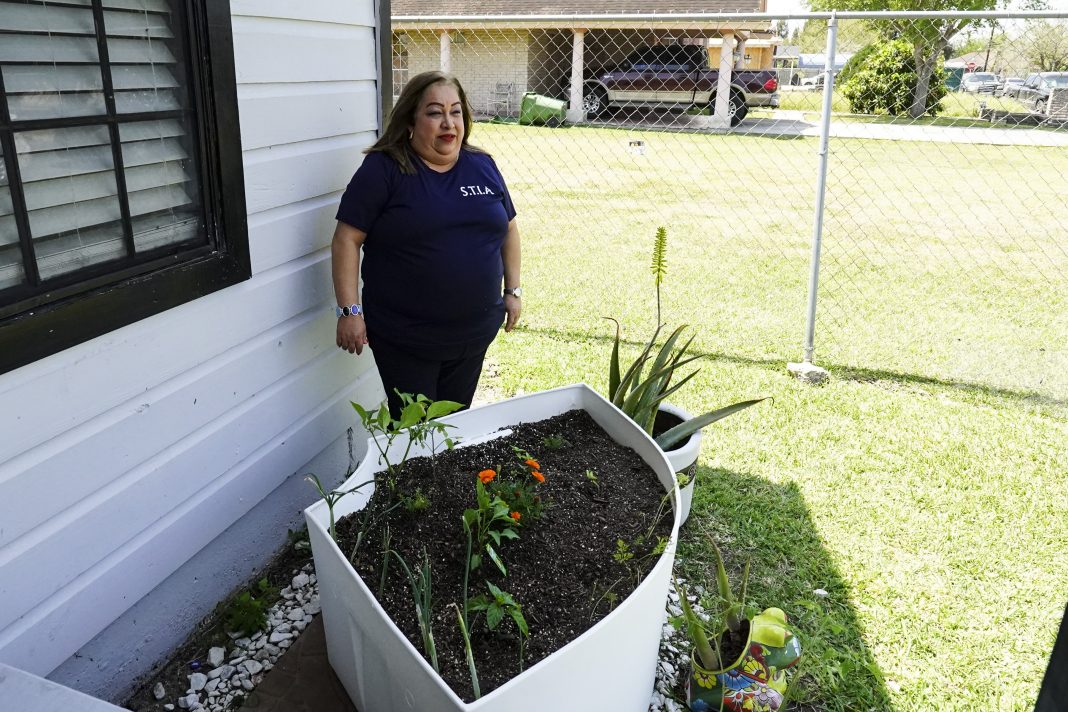There’s something so satisfying about working with nature.
The way it feels and smells to put your hands into the rich earth. To sow seeds or replant a tiny sprout, tending it faithfully until it grows up— healthy and vibrant.
Imagine the joy when all of your hard work, care and vigilance pays off and fresh juicy tomatoes or a bunch of richly spicy chilies—still warm from the sun—are on your kitchen table.
Martha Barbosa, 61, plans to learn firsthand the satisfaction of feeding her family —composed of her husband, five children, their spouses and 16 grandchildren — the fruits of their labors in the garden.
While growing your own food is a fun project to take on for any reason, Barbosa and her family are starting their gardening journey as one of 120 Brownsville residents involved in a pilot program through the Brownsville Wellness Coalition.
The program, called Project Grow, is from Big Green, a nonprofit co-founded by Kimbal Musk and Hugo Matheson, who believes that children should have opportunities to learn, play and grow up in healthy communities. Through garden-based learning, the nonprofit aims to create healthier students and communities through the power of growing food.
While in the past, Big Green focused on providing opportunities in schools, that had to change due to COVID-19 measures. Additionally, while school gardens are great opportunities for students during the school year, the nonprofit realized it has limitations as the school isn’t open year-round.
Big Green started to think of ways they could support communities outside of schools, such as taking their mission to online learning or—in this case—trying something completely new in Brownsville.
Inspired by the area’s community gardens and urban farms, Big Green wanted to make that experience accessible to a diverse audience.
“We thought about how can we provide these opportunities to individual families at home when everyone doesn’t necessarily have reliable transportation to get to a garden? How can we provide these same opportunities to moms, dads, grandparents and children to really engage?” Ava Jackson, Director of Program Operations for Big Green, said.

Big Green reached out to the Brownsville Wellness Coalition, and the two started putting together everything needed for the program’s March rollout in January of this year. From now until June, when the beds will need to be closed due to poor summer growing conditions, participants will be taking care of their gardens and posting progress photos, or for those without easy access to the internet giving phone call updates.
Brownsville Wellness Coalition plans to provide plenty of support for their new and experienced gardeners, with a phone-based support line and a dedicated Facebook group for gardeners to share information.
To set them up for success, Brownsville Wellness Coalition Garden Operations Manager David Vasquez has been working hard to select plants that do well for our area’s growing conditions and aren’t going to ask too much of beginners: tomatoes, onions, peppers, cilantro, pollinator plants like marigolds and other seasonal varieties.
Outside participant Barbosa’s quiet home on Medina Street, there’s a sense of joy and pride on her face as she stands in the shade of her front yard. Beside her is a tall white container garden of those carefully chosen veggies, peppers and bright marigold plants. The container, provided by Big Green, is designed to be accessible to people of different physical needs and provide adequate growing space and drainage for those who can’t necessarily have an in-ground garden bed.
After just a short time, Barbosa’s garden is already showing promise for the future. She is particularly delighted by the three still-green chilies that she and her family will soon be able to eat.
The garden will provide another activity for her and her family to come together for, and she expects that she’ll have plenty of helpers. Each Sunday, her children and grandchildren come over to spend time together, whether for a casual cookout or the all-important football season.
“Everybody that comes to the house will have to do something,” she laughs.
If the program is a success, there’s a good chance that next year, the Brownsville Wellness Coalition could expand with more participants and other cities in the Rio Grande Valley taking part.
For their partner organization, this is an opportunity to finetune the program and adapt things as needed. In June, if the pilot program succeeds, Big Green can begin to formulate how to bring the program to other communities across the country.
As someone whose father was a migrant worker, Brownsville Wellness Coalition’s Executive Director Veronica Rosenbaum, is excited to see this program highlight the work of farming and food production.
“It is important to me that we shine that light upon them and all the beautiful work and the value from growing your own food. Brownsville’s biggest asset is its community. We’re looking forward to providing a box for everyone’s home, and that’s my eventual goal to have everyone growing their own food,”




